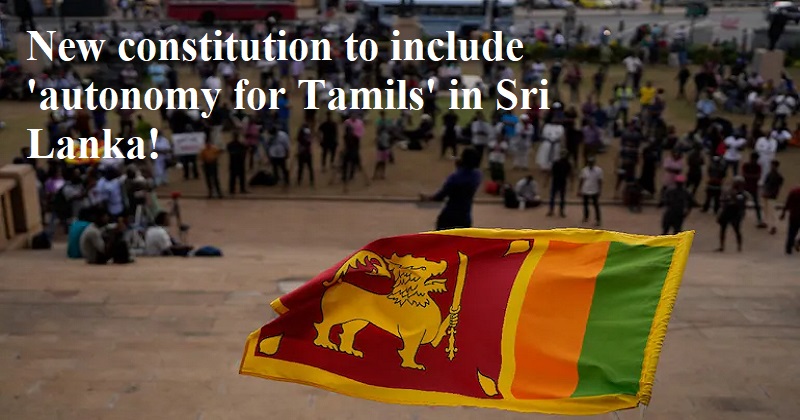
The Press Trust of India stated that the minority Tamil parties in Sri Lanka convened an internal conference after President Ranil Wickremesinghe invited them to participate in discussions and resolved to propose a three-point agenda, including their push for federalism (PTI). All Tamil political parties with strongholds in the East and North of the island nation gathered on Friday at the home of 89-year-old TNA leader Rajavarothiam Sampanthan to pursue federalism before Wickremesinghe’s scheduled all-party summit next month to address the long-standing demand for political autonomy for the country’s minority community.
The formula approved at the Friday intra-party conference calls for the holding of the provincial council elections that were postponed, the devolution of power to Tamil areas during the drafting of a new Constitution, and an end to what they refer to as the State’s appropriation of Tamil lands. In a message to the legislature, Wickremesinghe expressed his willingness to push out the meeting until after December 11.
He said that building trust between the Tamil minority and the Sinhalese majority was essential to putting an end to the protracted conflict. Wickremesinghe received a response from the TNA, a group of parties that advocates for Tamils in the north and east. But at least one conservative legislator from the majority-Sinhala nation rejected the idea. As prime minister in 2015, Wickremesinghe started a process of reconciliation with Sampanthan, a seasoned TNA leader.
The hardline Sinhala majority has blocked numerous attempts to address the Tamil desire for autonomy since the 1950s, giving rise to the Liberation Tigers of Tamil Eelam’s (LTTE) brutal military struggle for secession on behalf of the Tamils. An Indian attempt to set up a combined province council system for the Tamil-dominated North and East in 1987 failed due to complaints from the minority population that it fell short of full autonomy.
The LTTE, which was killed by the Sri Lankan Army in 2009 after the death of its senior leader Velupillai Prabhakaran, engaged in a bloody conflict for a separate Tamil state in the island nation’s northern and eastern areas for more than 30 years. According to Sri Lankan government figures, the three-decade brutal conflict with Lankan Tamils in the north and east, which killed at least 100,000 people, also left over 20,000 persons missing. International rights organisations assert that at least 40,000 ethnic Tamil civilians perished in the last phases of the conflict, while the Sri Lankan government rejects these assertions.

Post Your Comments